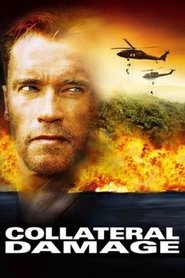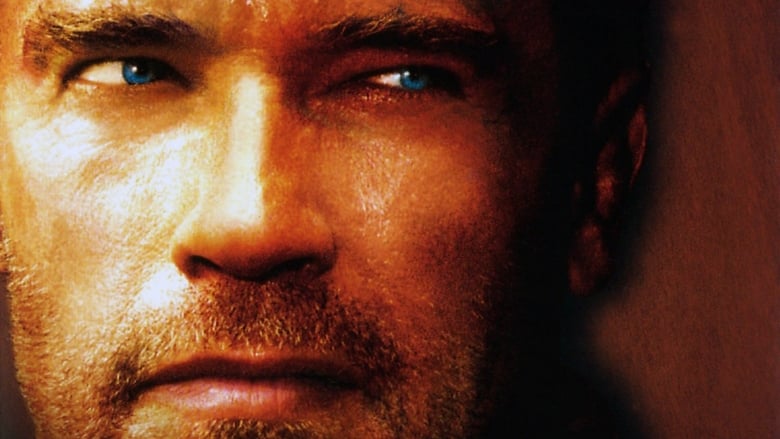“Collateral Damage” (2002) is an action film that follows the journey of a firefighter-turned-vigilante seeking revenge after his wife and son become victims of terrorism.
Arnold Schwarzenegger plays a gritty firefighter named Gordon Brewer, who must transform into an avenging force in order to tackle the terrifying Colombian guerrilla group that has shattered his life. Directed by Andrew Davis, this high-octane thriller takes viewers on a rollercoaster ride of danger and suspense.
Through intense explosions, heart-pumping chases, and nerve-wracking encounters, Brewer navigates the treacherous terrain of international terrorism with determination and grit. His mission becomes one of personal survival and justice as he infiltrates enemy lines to dismantle the complex web of evil.
With relentless pursuit and unwavering dedication, Brewer transcends his initial role as a protector to become an unstoppable force against those who have robbed him of his happiness. Collateral Damage showcases the indomitable spirit that can arise from tragedy and highlights the transformative power of human resilience.
This explosive film explores themes of vengeance, morality, and sacrifice while delivering adrenaline-fueled thrills that leave audiences gripping their seats until its climactic conclusion. “Collateral Damage” is a masterclass in action cinema with its sharp storytelling, thrilling sequences, and powerful performances that keep viewers engaged from start to finish.

CLICK HERE🡇🡇🡇🎦_Watch Collateral Damage 2002 English Subtitles_
Review
“Collateral Damage”: A Dark Tale of War and Loss
In the shadowy depths of the film industry, where empty-headed blockbusters reign supreme, occasionally a film emerges that captivates audiences with its gravity and emotional depth. One such gem is “Collateral Damage,” a masterfully crafted movie directed by Andrew Davis. Released in 2002, this harrowing tale delves into the heart-wrenching consequences of war, enveloping viewers in a web of suspense and tragedy reminiscent of George Orwell’s dystopian novels.
From the opening scene, “Collateral Damage” grips its audience with an unflinching portrayal of the horrors that lurk beyond newspaper headlines. The storyline revolves around Gordon Brewer (played by Arnold Schwarzenegger), a firefighter whose life is irrevocably shattered when his wife and son fall victim to a terrorist attack on American soil. Driven by grief and vengeance, Brewer embarks on a mission to hunt down Claudio ‘The Wolf’ Perrini (Cliff Curtis), the infamous terrorist responsible for the atrocity.
News reports, expertly woven throughout the film’s plot, provide chilling facts about global terrorism and its chilling impact on innocent lives. These snippets serve as haunting reminders of our world’s all-too-real struggles against extremists who thrive on destruction. The filmmakers expertly capture these realities through evocative dialogue between characters, leaving viewers pondering their own vulnerability in a world marred by violence.
The cast’s performances in “Collateral Damage” are nothing short of stellar. Schwarzenegger shines as Gordon Brewer, imbuing his character with raw emotion rarely seen in his previous action-packed roles. His portrayal perfectly conveys the anguish and desperation that accompany unimaginable loss. Likewise, Cliff Curtis mesmerizes as Claudio ‘The Wolf,’ exuding an air of chilling menace while revealing glimpses of a complex psychopathy lurking beneath.
Historical context plays a crucial role in shaping the narrative of “Collateral Damage.” It was released in the wake of the tragic September 11th attacks, when fear and uncertainty gripped the hearts of people worldwide. The film’s exploration of terrorism and its far-reaching consequences resonated deeply with audiences, offering a poignant reflection on the collective trauma still fresh in their minds.
The score, composed by Graeme Revell, deserves special mention for adding an additional layer of tension to the already gripping plot. Revell’s haunting melodies seamlessly merge with the film’s cinematography, enhancing every gut-wrenching moment. The soundtrack, featuring tracks such as “Victims” and “Collateral Damage,” underscores the weighty themes explored throughout the movie.
Despite its powerful impact, “Collateral Damage” did not receive widespread acclaim from critics upon its release. Some dismissed it as just another typical action film, failing to recognize its profound exploration of grief and moral dilemmas within a post-9/11 landscape. This criticism only highlights how easily audiences can overlook substantial art in favor of superficial entertainment.
The film’s direction and cinematography further contribute to its lasting resonance. Davis expertly captures scenes of chaos and destruction, juxtaposing them with moments of quiet reflection to demonstrate the fragile balance between hope and despair. One memorable scene depicts Brewer pursuing his quest amidst a labyrinthine network of abandoned buildings, metaphorically embodying society’s struggle against evil forces lurking within its own foundations.
Gossip surrounding “Collateral Damage” stemmed not from scandalous rumors but rather from admiration for Schwarzenegger’s seamless transition into more nuanced roles. Critics praised his performance as evidence that he possessed more acting talent than mere muscle-bound action sequences had allowed him to display. The film stood as a testament to his versatility while shattering long-held stereotypes about him as a performer.
An analysis of special effects used within “Collateral Damage” reveals that they serve as mere conduits for the film’s emotional depth. Explosions and destruction aren’t the focus here; rather, they serve as backdrop to emphasize the emotional turmoil experienced by the characters. This deliberate restraint demonstrates a maturity and artistic sensibility that sets this movie apart from its contemporaries.
Development and production of “Collateral Damage” were not without their fair share of challenges. The filmmakers faced immense pressure to address terrorism responsibly while avoiding sensationalism. Their dedication to crafting a thoughtful and emotionally resonant story shines through in every frame, proving that quality filmmaking can transcend mere entertainment.
In the realm of dialogue, “Collateral Damage” presents viewers with much food for thought. One particular line lingers in the mind long after the credits roll: “Remember, when you go to kill someone, it starts out as a job – but it ends up as an obsession.” This chilling reminder serves as a stark warning against allowing one’s righteous quest for justice to morph into a monster of its own making.
The crews involved in “Collateral Damage” demonstrated impeccable attention to detail during production and editing, ensuring every shot added depth and emotion to the unfolding narrative. Their commitment paid off in creating an immersive experience that left viewers simultaneously horrified and moved.
Criticism leveled at “Collateral Damage” often centered on its perceived lack of originality. Yet, like Orwell’s works before it, this film proved that originality need not be measured solely by novelty but by an artist’s ability to present timeless themes within contemporary contexts. In this regard, “Collateral Damage” succeeds admirably, challenging audiences to confront uncomfortable truths about war, loss, and our own complicity in perpetuating violence.
As George Orwell himself once wrote: “A people that elect corrupt politicians…imposters…thieves…and traitors are not victims…but accomplices.” The sentiment embedded within those words reverberates throughout “Collateral Damage,” a film that dares to investigate the consequences of our choices and the blurred lines between victimhood and complicity.
In conclusion, “Collateral Damage” stands as a testament to the power of film to illuminate uncomfortable truths. It challenges viewers to confront their own role in perpetuating violence by presenting a morally complex narrative within a post-9/11 landscape. Its masterful direction, powerful performances, and thought-provoking themes make it a must-watch for anyone seeking artistic depth in an industry often marred by shallow entertainment. Dive into this dark and gripping tale, but be prepared for the collateral damage it may inflict upon your soul.
Technical Data

- Release : 2002-02-06
- Runtime : 108
- Genre : Action, Thriller, Drama
- Cast : Arnold Schwarzenegger as Gordy Brewer, Francesca Neri as Selena Perrini, Elias Koteas as Peter Brandt, Cliff Curtis as Claudio Perrini, John Leguizamo as Felix Ramirez
- Crew : Steven Reuther as Producer, Nicholas Meyer as Executive Producer, Amanda Mackey as Casting, Ronald Roose as Screenplay, Graeme Revell as Original Music Composer
- Revenue : $78,382,433
- Budget : $85,000,000
- Company : David Foster Productions, Hacienda Productions, Bel Air Entertainment
- Popularity : 20.974
- Summary : Firefighter Gordon Brewer is plunged into the complex and dangerous world of international terrorism after he loses his wife and child in a bombing credited to Claudio ‘The Wolf’ Perrini.
- Tagline : What would you do if you lost everything?
